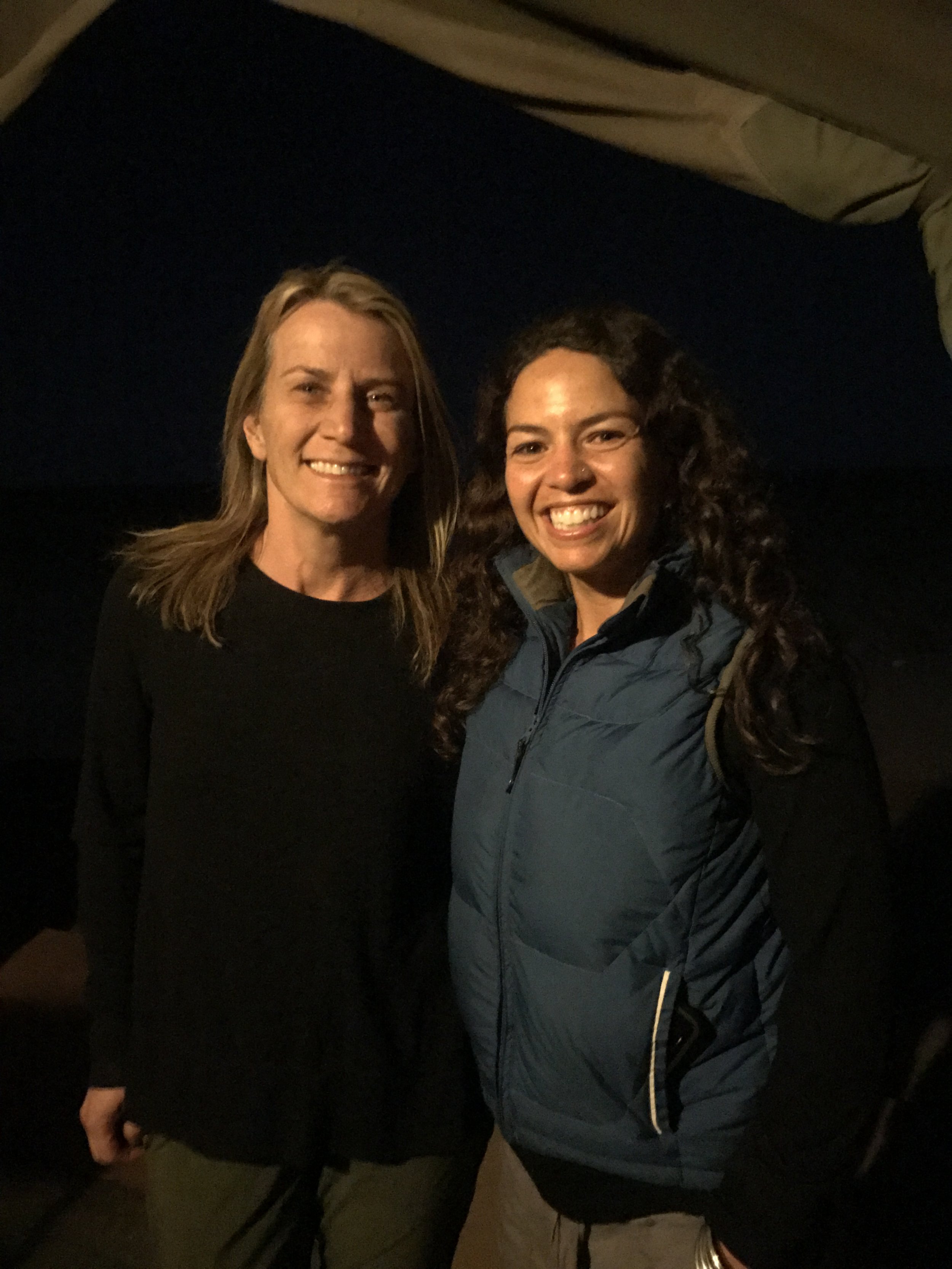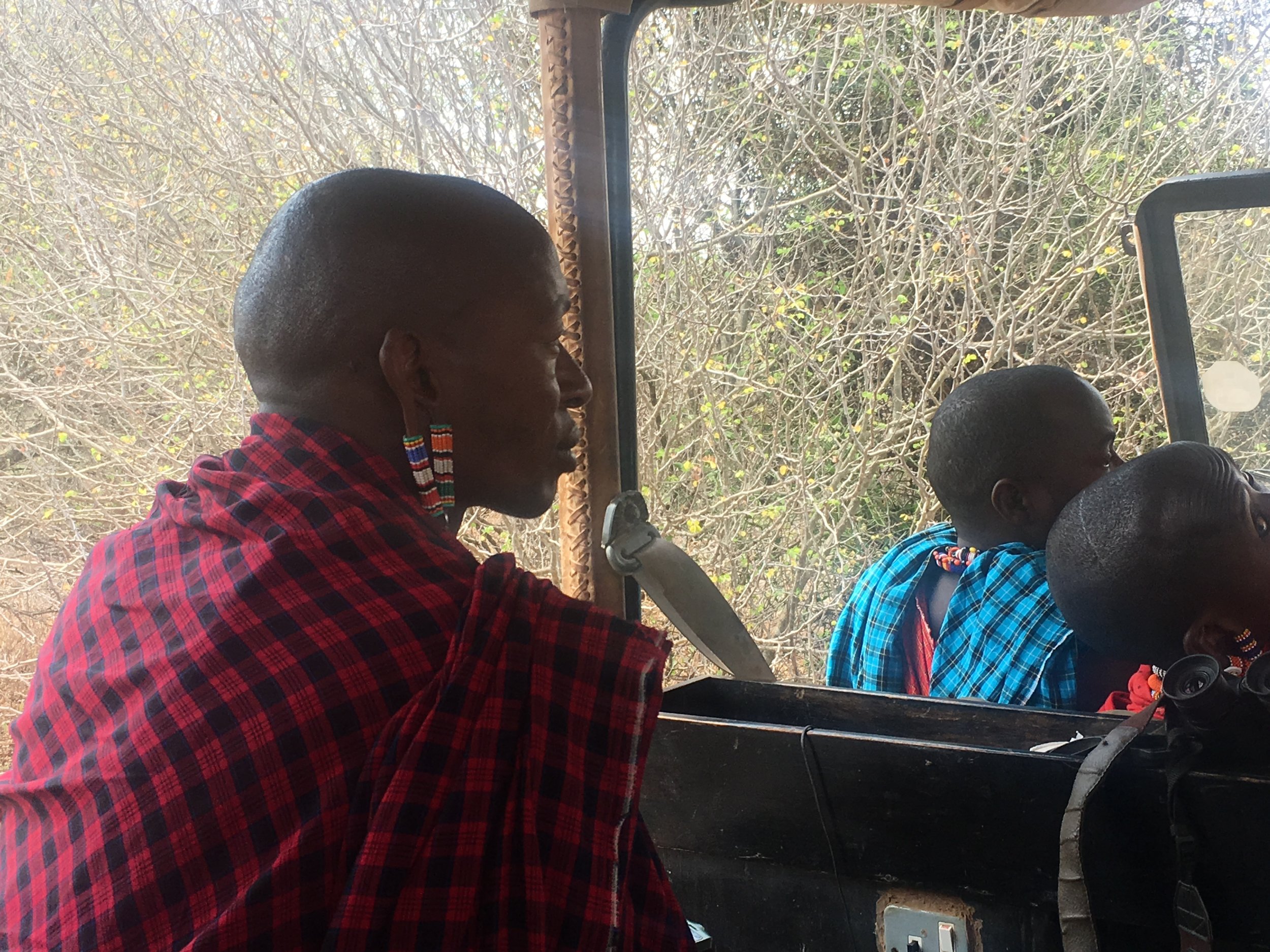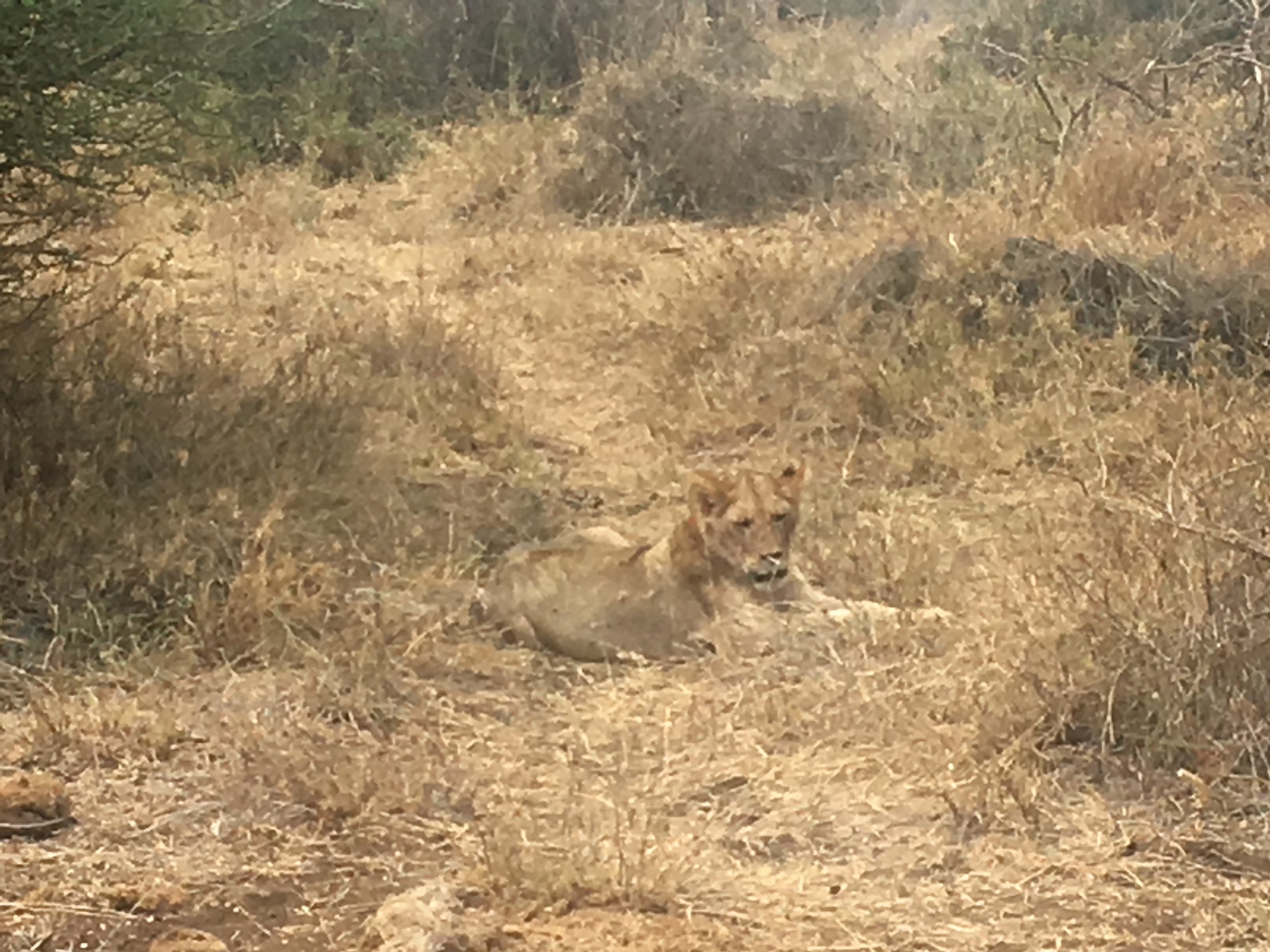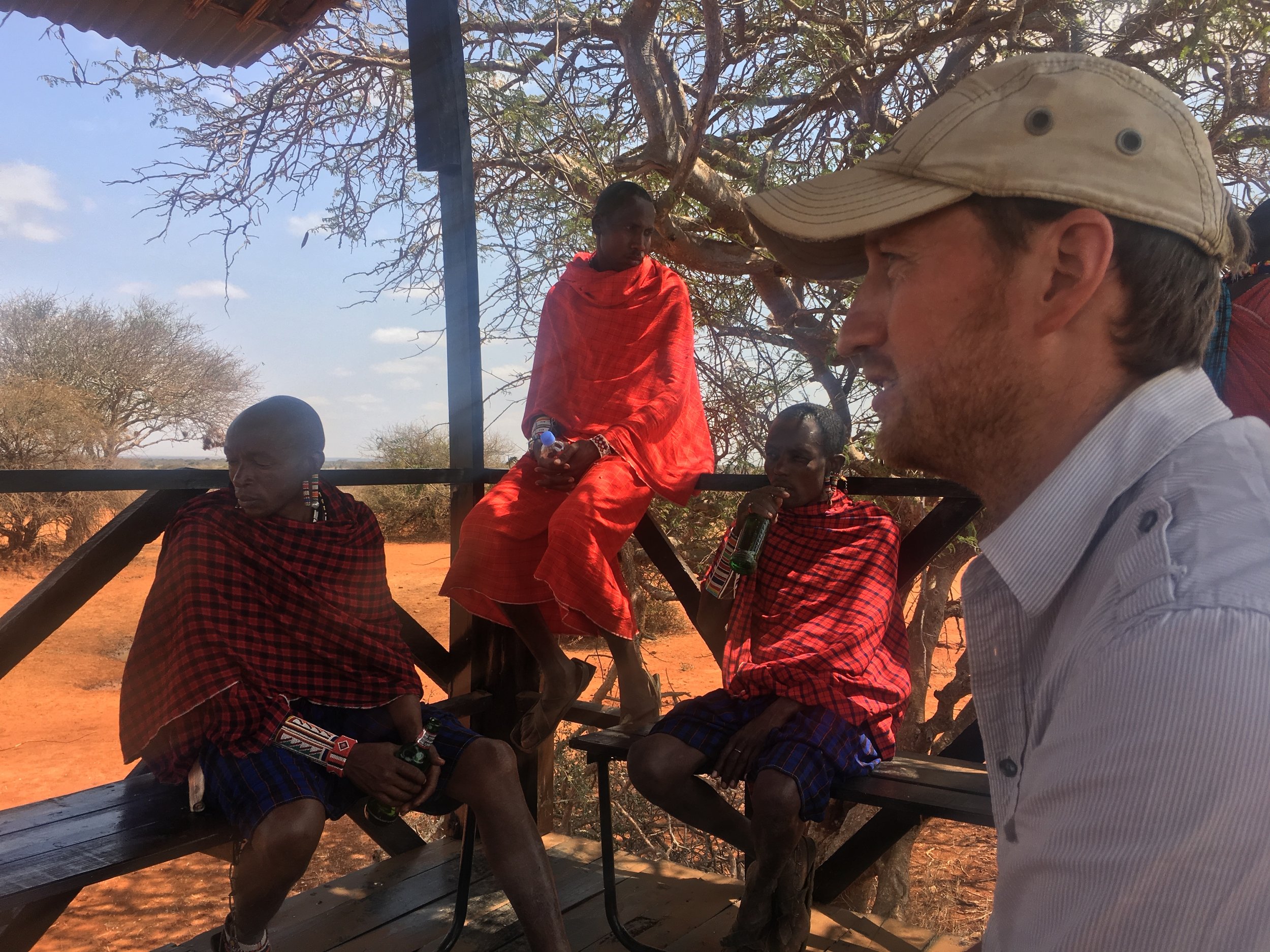WINGS WorldQuest Managing Director Yael Jekogian is currently on a month-long round-the-world trip with her family, during which they are visiting visionaries who are running groundbreaking projects with the goal of making the world a better place and creating harmony with humanity, wildlife and nature. During her travels, she is visiting with several WINGS Fellows. The following is the second post in a series of dispatches we will publish during her travels. See the rest of the series here.
Yael Jekogian and Leela Hazzah.
Photos by Yael Jekogian.
Photos by Yael Jekogian.
Photos by Yael Jekogian.
Two days before the Kenyan presidential elections, I visited with The Lion Guardians, founded in 2007 by WINGS WorldQuest Fellow Leela Hazzah and Stephanie Dohreney. The Lion Guardians work with members of the Maasai tribe to promote coexistence with the lion population. When the Lion Guardians started there were only two lions in the Selenkay Conservancy, where we trekked with them today. The population was so low because Maasai would kill lions in retaliation when a lion killed any of their livestock. The Lion Guardians now train Maasai warriors to be “Lion Guardians.” Since the Lion Guardians have been working in this region the past eight years, the lion population in Selenkay has grown from two to 40.
I accompanied the Community Manager (a Maasai named Eric Ole Kesoi), the Lion Monitoring Manager (a Kenyan-born Irishman named Phillip Briggs), and a few of the Maasai Lion Guardians on their daily routine. They start at 7 a.m. tracking lions and their prey by looking for fresh footprints that aren’t more than 24 hours old. They record everything, which is ultimately input into an electronic monitoring system to track the populations and their whereabouts in the conservancy.
We got out of our safe vehicle to walk with the Guardians to see how they find and record the footprints. After only a few minutes we saw a giant male elephant watching us from a hundred yards away. Phillip quickly told us to keep walking out of the elephant’s vision and pulled out his phone to call our vehicle around. The wild animals feel much more threatened by humans on foot than in a vehicle. One Lion Guardian wouldn’t have looked so threatening, but a large group of us was unsettling to him.
Once the tracking tasks were completed, we went looking for a pride of nine lions that were known to be in the area. The Lion Guardians can track the lions’ path, even in thick brush. A few of the Guardians went on foot to find them and report back while we waited safely in the bush vehicle. They came back quite quickly with big smiles. We all approached the pride in the vehicle and sat and watched the group of three mothers and six cubs up close and personal. They don’t mind us being just a few yards away, as long as we are in the vehicle.
Phillip took dozens and dozens of photos of all of the members of the pride. They use the whisker patterns to identify each individual lion, as no two patterns are the same. They are working on perfecting a computer program that uses this information to identify lions by photograph.
The Lion Guardians also keep herders notified of where the lions are so they can take their livestock in the opposite direction for grazing. They also recover and return lost livestock so that they don’t become prey for the lions. This simple task is a great contributor to negating potential human-animal conflict.
If and when a lion does kill a cow, the villagers become angry and emotional, with an instinct of retaliation. It is the Lion Guardians’ job to immediately intervene, calm the villagers down, and remind them why it’s important to conserve the lions. This is one of the most challenging tasks for the Lion Guardians.
We had the privilege of speaking with one of the senior Lion Guardians, Kamunu, through and interpreter. He is a Maasai warrior who has killed eight lions, which made him a hero in the village and the region. His fame also landed him in jail after his last kill, and his father had to sell a number of the family’s precious cows to set him free. This was quite shameful for him. After a while he felt that he had gained all of the respect that he could from killing lions and decided to accept the Lion Guardians’ offer of a job with them. He was a top prospect for the Lion Guardians because of the respect he had gained in the Maasai community. He realized that, by accepting this position, he would be able to provide for his family responsibly and increase the prosperity and prestige of his village.
Maasai warriors receive a special lion name when they kill their first lion. This has garnered respect for generations and generations. Now there is a new way to build respect. Lion Guardians is one of the most coveted jobs in this region. When the local women were polled last year and asked whether they would be more attracted to a man who had killed a lion or who was a Lion Guardian, 99 percent chose Lion Guardian.



